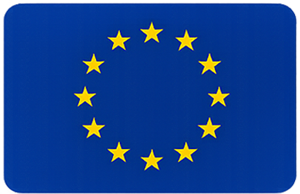
What is the European Baccalaureate?
The European Baccalaureate (EB) is a diploma awarded to students who have successfully completed their studies at a European School or an accredited European school. This diploma is designed to offer a multilingual and multicultural education, preparing students to pursue higher education throughout the European Union and beyond.
It corresponds to the final stage of secondary education in European Schools and covers the last two years of secondary school (S6 and S7).

Structure of the European Baccalaureate
Secondary education in European Schools is organised into three cycles, culminating in the final two years which directly prepare students for the European Baccalaureate examination. The final exam takes place at the end of the 7th year and allows students to obtain the European Baccalaureate diploma, certifying the completion of their secondary education.
| CYCLES | YEARS | AGES |
|---|---|---|
| Cycle 1 | Secondary 1 to 3 | 11 – 13 years |
| Cycle 2 | Secondary 4 and 5 | 14 – 15 years |
| Cycle 3 (European Baccalaureate) | Secondary 6 and 7 | 16 – 18 years |
Why choose the European Baccalaureate?
✔ A diploma recognised throughout the European Union
The European Baccalaureate is officially recognised by all EU member states and grants access to universities and higher education institutions just like national diplomas. For instance, a student who earns their European Baccalaureate in Belgium can continue their studies in France, Germany, Spain, Italy, and other EU countries.
✔ A multilingual and multicultural programme
Students take courses in at least two languages, promoting bilingualism or trilingualism. This offers a major advantage in international higher education and global job markets.
✔ A balanced and versatile curriculum
The European Baccalaureate programme combines a core curriculum with elective subjects, enabling students to personalise their academic path. Subjects include:
- Languages (mother tongue + foreign languages)
- Mathematics and Sciences
- Humanities (history, geography, economics, philosophy)
- Arts and Physical Education
The goal is to develop autonomy, critical thinking, and general knowledge in students.
European Schools in Brussels
Brussels is home to four official European Schools as well as one accredited European School.
The 4 official European Schools in Brussels:
The Accredited European School of Brussels-Argenteuil (EEBA)
In addition to the four official European Schools, Brussels also has an Accredited European School: the European School of Brussels-Argenteuil (EEBA). This private non-profit school fully follows the official European Schools curriculum and prepares students for the European Baccalaureate.
Unlike the official schools, EEBA does not receive any European Union funding, meaning its tuition fees cover 100% of the actual cost of education. Open to all families—whether or not they are linked to the EU institutions—it offers a multilingual, international and nature-rich environment, and also provides the International Baccalaureate (IB) alongside the European Baccalaureate.
Official European Schools are primarily intended for children of EU institution staff, though other students may be accepted depending on availability. The European School of Brussels-Argenteuil is an accredited private alternative that follows the European curriculum.
How to enrol in a European School?
Admission criteria
Admission to official European Schools is primarily reserved for children of EU staff. However, places may be offered to other students depending on availability and a system of priority.
Families are typically required to provide:
- Academic records from previous years
- Proof of parents’ professional status (for official schools)
- Proof of residence in Belgium
Admission to an accredited school like Brussels-Argenteuil is more flexible and functions like a typical international school.
Differences between the European Baccalaureate and the International Baccalaureate (IB)
The European Baccalaureate (EB) and the International Baccalaureate (IB) are both international diplomas granting access to higher education. However, they differ in structure, academic framework, and recognition.
The European Baccalaureate is managed by the European Schools network, mainly for children of EU officials. It features multilingual education where students take courses in several official EU languages. This diploma is primarily recognised within the EU, allowing graduates to access European universities on par with national diploma holders.
In contrast, the International Baccalaureate (IB) is administered by the International Baccalaureate Organisation (IBO) and offered in accredited schools worldwide. It is mainly taught in English, French, or Spanish and welcomes students regardless of parents’ professional background. Recognised in over 110 countries and 4,500 institutions, the IB is often preferred by families seeking a globally portable and academically rigorous qualification.
Thus, the choice between the European Baccalaureate and the IB will depend on the student’s academic goals, international mobility, and desired language environment.
Conclusion
The European Baccalaureate is an excellent choice for families working in EU institutions or those seeking a multilingual and EU-recognised education.
With four official European Schools in Brussels and an accredited school in Waterloo, the Belgian capital offers a wide range of institutions following this curriculum. Before choosing between the European Baccalaureate and the International Baccalaureate (IB), it is essential to evaluate your child’s university aspirations and language needs.
To enrol in a European School in Brussels, we recommend contacting the schools directly to learn more about availability and admission conditions.





